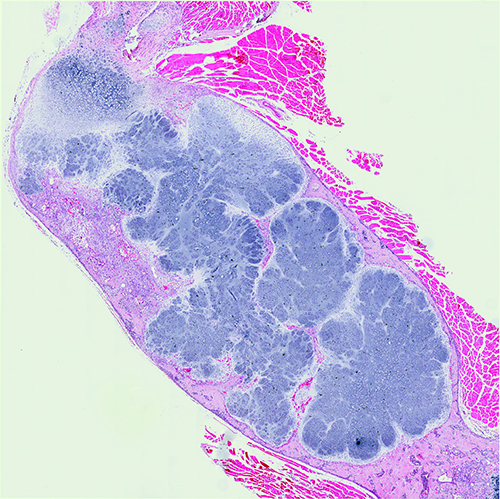
Most people think that their planners or their iPhones keep them organized, when proteins such as liver kinase b1 (Lkb1) actually have a lot more to do with it. New research from postdoctoral fellow Lick Lai in the lab of USC scientist Andy McMahon published in Proceedings of the National Academy of Sciences (PNAS) sheds light on how this important protein keeps people organized on a basic level by promoting orderly skeletal growth and preventing skeletal tumors.
In a developing embryo, many bones form based on cartilage templates. The study found that to form these templates, Lkb1 protein controls the progression of immature, dividing cartilage cells into larger, mature and fully differentiated cartilage cells. Without Lkb1, the population of immature cartilage cells disproportionately increases, leading to skeletal tumors.
The way that Lkb1 controls the differentiation of cartilage cells is by suppressing what’s known as the “mammalian target of rapamycin (mTOR) pathway” — a very important complex of molecules that coordinates growth in response to available nutrients and other factors. Problems with the mTOR pathway have been implicated in a host of human diseases, including diabetes, obesity, depression and many cancers.
The influence of abnormal Lkb1 isn’t restricted to the skeleton, however. Mutant forms of Lkb1 are frequently present in patients with lung, cervical, breast, intestinal, testicular, pancreatic and skin cancers, and in patients with the Peutz–Jeghers syndrome, characterized by benign polyps in the gastrointestinal tract.
“By understanding Lkb1 and the mechanisms that control normal skeletal development, we also learn how we might prevent this development from going awry in cancers and other disorders,” said McMahon, who directs the USC Stem Cell initiative and the Eli and Edythe Broad Center for Regenerative Medicine and Stem Cell Research at USC.
Co-authors Brendan N. Lilley and Joshua R. Sanes from Harvard University also contributed to the paper.
National Institutes of Health/ National Institute of Diabetes and Digestive and Kidney Diseases Grant P01 DK056246 provided funding for the work in the McMahon lab, and Dr. Lai is a recipient of an Arthritis Foundation Postdoctoral fellowship.
